
The assistant professor at Cleveland Clinic discussed key factors to consider when choosing repurposed drugs that could show max potential in treating Alzheimer disease.

The assistant professor at Cleveland Clinic discussed key factors to consider when choosing repurposed drugs that could show max potential in treating Alzheimer disease.

The ICARE AD-US trial is expected to enroll 6000 participants, with at least 16% of the population aimed at including those from underrepresented communities. The unrelated confirmatory phase 4 trial is still in the process of being designed.

Clive Ballard, MD, professor of age related diseases at University of Exeter, commented on the potential impact that the approval of pimavanserin would have for patients if approved for dementia-related psychosis.

The effect of methylphenidate on Alzheimer disease apathy was observed at 2 months and was sustained throughout the 6 months of the study.

Participants will be enrolled for 18 months, with baseline data provided and compared to the lecanemab phase 2 study cohort.

The duo from the Critical Path Institute discussed how CPAD is revolutionizing data collection within the Alzheimer disease community and the advantages it brings to clinicians.

Jessica L. Stulc, MD, MPH, offered an in-depth review of the latest approved therapies in the sphingosine phosphate 1 targeting class of oral medications for MS including ozanimod (Zeposia; BMS) and ponesimod (Ponvory; Janssen).

Clive Ballard, MD, spoke on safety data presented at this year’s AAIC meeting, as well as the impact of symptoms associated with DRP, which can be distressing for individuals and their families.

The therapy, already FDA-approved for individuals with pulmonary artery disease, was significantly associated with reduced likelihood of Alzheimer disease in both the 65-74 year range and those older than 75 years.

Ballard, a professor of age related diseases at University of Exeter, discussed the results from a recent trial of pimavanserin in dementia-related psychosis, and data presented at this year’s AAIC meeting.

Findings presented at AAIC 2021 found that long-term, daily treatment with non-invasive stimulation was both safe and well-tolerated in patients with Alzheimer disease.

Pooled data from the phase 3 clinical development of aducanumab (Aduhelm; Biogen) suggest that ARIA remains a mostly asymptomatic problem, with MRI providing an effective way to monitor events.

The agent, which is FDA-approved for hyperlipidemia, showed significant improvements in plasma glucose, lipid levels, and trends in cardiovascular imaging biomarkers.

The associate professor of neurology at Mayo Clinic Rochester discusses technological advancements and research efforts in relation to differential multiple sclerosis.

The associate professor of neurology at Mayo Clinic Rochester, commented on biomarkers for identifying MS in patients, as well as the significance of new MS consensus guidelines.

The associate professor of neurology at Mayo Clinic Rochester discusses the importance of alternative diagnoses and rarer presentations of MS, in order to avoid misdiagnoses and inappropriate treatment for patients.
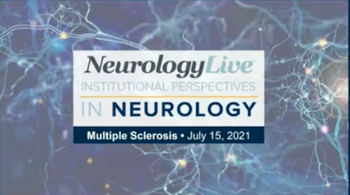
Chaired by Brian G. Weinshenker, MD, the presentations also feature Mayo Clinic experts W. Oliver Tobin, MBBCh, BAO, PhD; Jessica Stulc, MD, MPH; and Orhun H. Kantarci, MD. [WATCH TIME: 1 hour, 30 minutes]
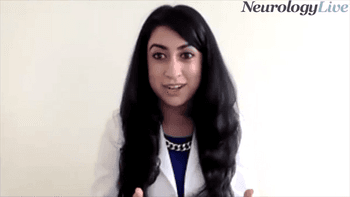
The headache fellow at Cleveland Clinic outlined the design and reasoning for a new study assessing nerve blocks to treat COVID-19 headache.
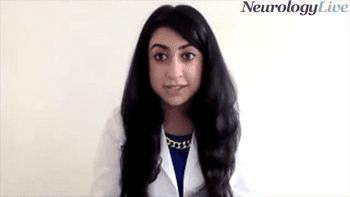
The duo from Cleveland Clinic discussed their presentation from AHS 2021 regarding the effects of COVID-19 on access to telemedicine visits among minorities.

Clive Ballard, MD, discussed up-and-coming technologies for remote risk assessment, among other data presented at this year’s AAIC meeting.

Data presented at SLEEP 2021 from Study 303 suggest that long-term use of lemborexant is well received by patients, who reported that the agent helped them fall asleep and improved total sleep time.
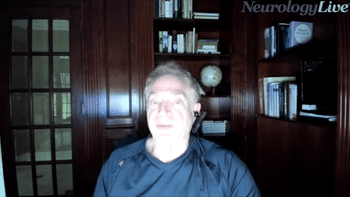
The director of the Montefiore Headache Center discussed the momentum within the migraine research community as well as some of the more notable presentations from AHS 2021.

Deena Kuruvilla, MD, the medical director of the Westport Headache Institute spoke to the potential of e-TNS in the treatment of migraine overall and which gaps in care that it might fill.

The vice president of Medical Affairs in Migraine at Impel discussed the clinical takeaways from the STOP 301 trial of intranasal DHE and the advantages that the novel formulation might offer patients with migraine.

The medical director of the Ohio State Sleep Medicine Institute provided insight on areas within sleep disorder care that need improvement, including the diagnostic process.

The Idorsia dual orexin receptor antagonist was accepted by the FDA for review in March 2021 and has shown efficacy in a number of SLEEP 2021 poster presentations.

The medical director of the Ohio State Sleep Medicine Institute discussed the effect of FT218 in treating narcolepsy regardless of stimulant use, as well as its weight-related benefits it brings.

The medical director of the Ohio State Sleep Medicine Institute detailed the progress made within the sleep disorder field in recent years and where it can turn to next.

The director of the Sleep-Wake Disorders Center at Montefiore Medical Center detailed the overall state of sleep care and the advantages the investigational FT218 brings to the growing pipeline.
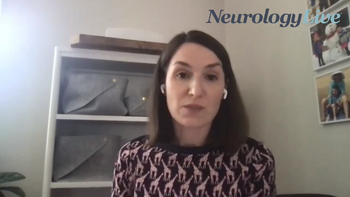
The program director of the Medstar Georgetown University Hospital Headache Medicine Fellowship program discussed the potential of INP104 to improve migraine patient care.